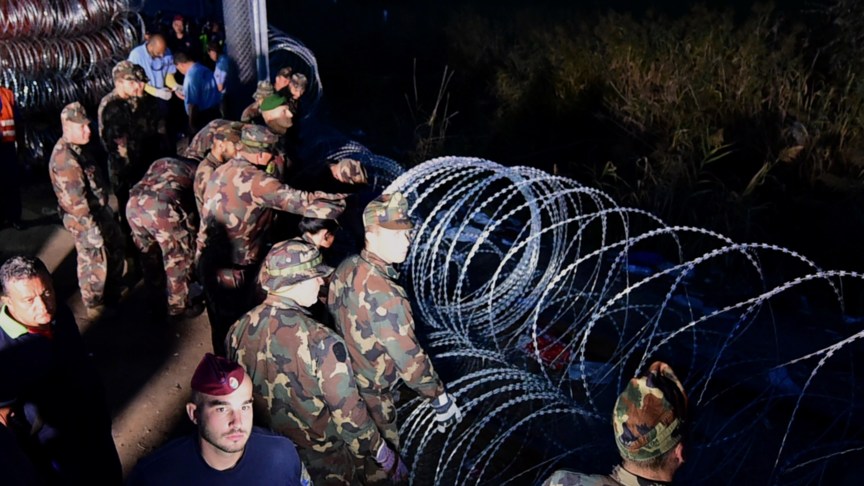Every year, on the third Tuesday of September, it is ‘Prinsjesdag’ (Little Princes Day). There are a few important happenings on this day. One of these is the monarch’s speech (‘De Troonrede’, in Dutch). This is a speech done by the king (or queen) in which is told about the coalition agreement. The coalition agreement describes how certain issues will be taken care of by the cabinet in the upcoming year, for example: what will be done against crime? The speech takes place in the ‘Ridderzaal’, in The Hague.
Another happening is the presentation of the ‘miljoenennota’, by the Minister of Finance. This document tells about the plans of the government and the amount of money used for each plan. The ‘miljoenennota’ describes the most important parts of the National Budget.
Then the Second Chamber debates about this budget in a special debate, called the General Debate. Of course the different parties will look critically to the budget, having their own priorities in mind. They discuss with each other, and vote on the proposals.
The role of the king is actually mainly traditionally. He will drive towards the ‘Ridderzaal’ with ‘De Gouden Koets’ (The Golden Coach). There he will do the famous speech. This is always on almost every channel on the news at that moment in the Netherlands. It’s an important Dutch ceremony.
The ‘miljoenennota’ is an explanation by the government about all expected expenses in the National Budget for the upcoming year. The Minister of Finance presents it, and hands it over to the Prime Minister (from the Second Chamber). The ‘miljoenennota’ is there to, as I said before, explain the expenses for upcoming year, but also to tell about the influence this has for people and businesses. It also describes the financial situation of the Netherlands at that moment and the expectance for the upcoming year. This means that there is also explained how a deficit, if it’s there (and that usually is the case), will be solved.
A few of the plans told about in the ‘miljoenennota’ are:
- Payrollemployers will get equal employment rights; before, payrollemployers (temporary workers, who got work through a company which sends out payrollemployers to businesses) had different rights than the employers who were directly hired by the company. Now the rule ‘same work, same salary’ counts.
- Foreign employers should be treated the same as national employers; the government wants to fight illegal workers who don’t pay taxes over their salary and make sure that employers earn the same salary on different locations if they do the same work.
- Policy for jihadists; to prevent jihadism the government will introduce effort towards education, families and towns to inform people better.
- Fight unemployment amongst youth; the cabinet will focus on unemployed youth in neighbourhoods. At the moment this happens in some cities. There is special attention for migrant youth. The aim is to take care of better preparation through education for the employment market, and to help migrant youth to get a job quicker.
- Help people with debts and prevent it; the cabinet has planned to spend €100 million a year to fight debts and poverty. This will mainly go to towns themselves, so that people who have come into problems can be helped, and another aim is to prevent debts. There is special attention for children: there are packets for children, which contain for example discounts for swimming lessons, or clothes.
I want to react on two of the plans named above, and to be exact, I want to react on the last two plans.
To start with the plan to fight unemployment amongst youth. I think this is really necessary, so this seems to be a good plan. I often hear around me stories from people who have finished their complete education for a job and are seriously exited and motivated to start with that job… but then it turns out that there is actually a lack of jobs which forces them to search another job which is probably not what they wanted or it is for a low salary, or lower than they are educated for. This is how dreams can fall apart. What is the big problem in the example I named? The student probably wasn’t informed well about how much chance there was to get a job for him. As I read, this is one of the ways the government will fight unemployment amongst youth. Also they have a solution for ‘weak youth’: youth without a starting diploma or with an income supplement. But I can’t really find how they will help migrant youth with a diploma, who don’t fit into the employment market because of other reasons (not used to the Dutch culture, different type of education, doesn’t speak the language). So I doubt if there’s thought about that.
Now my reaction to the plan to help people with debts and prevent it. I think this idea is really good, because everywhere you can find stories of people who have a lack of money (or at least a lot less money as earlier) because of the crisis. It is smart to give the money to the towns, because they can judge better and easier in what kind of situation someone is. Especially the attention for the position of children is really important. Parents often want their children to have everything they need. But this becomes difficult when you have serious debts. This causes big differences between children. Perhaps two friends in the same class might totally have a different life, because one of them has a life without worries and gets everything needed, while the other one is aware of the fact that she won’t get the same things because her parents can’t afford it. I think children should all be treated equal, and get equal chances so this might help parents in their struggle.
So good plans are made, but maybe should be thought out a little more still.





Recent Comments